Dark matter, the elusive search: Latest discoveries and news
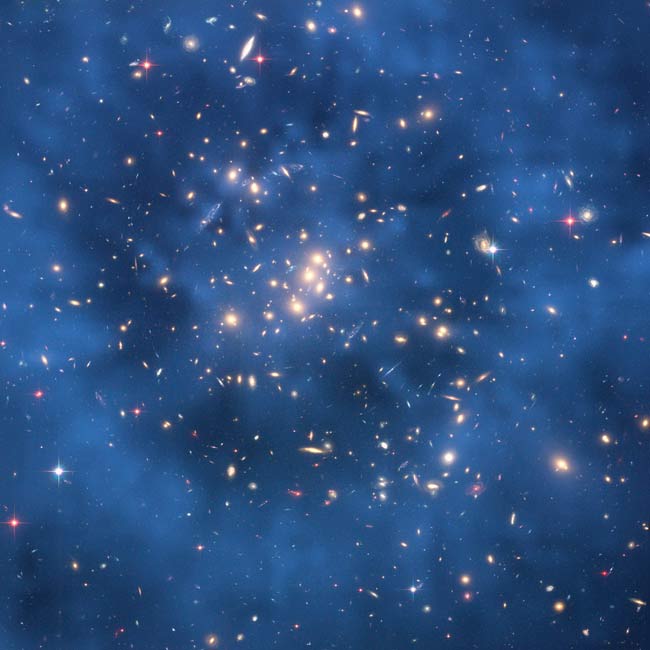
Roughly 80 percent of the mass of the universe appears to be dark matter: an invisible material that seems to interact with ordinary matter only through gravity, without emitting light or energy. Scientists cannot detect dark matter directly and don't yet know what it's made of, but they track its influence based on the motions of stars and galaxies. The presence of dark matter is necessary to explain the universe's current structure.
Related Topics: The Big Bang Theory, Black Holes, The Theory of Relativity in Space, Gravitational Waves
Join our Space Forums to keep talking space on the latest missions, night sky and more! And if you have a news tip, correction or comment, let us know at: community@space.com.
Latest about dark matter

Some dark matter haloes could roll through the universe like hollow cosmic Easter Eggs
By Robert Lea published
The universe could be packed with dark matter haloes that have no galaxy fillings.
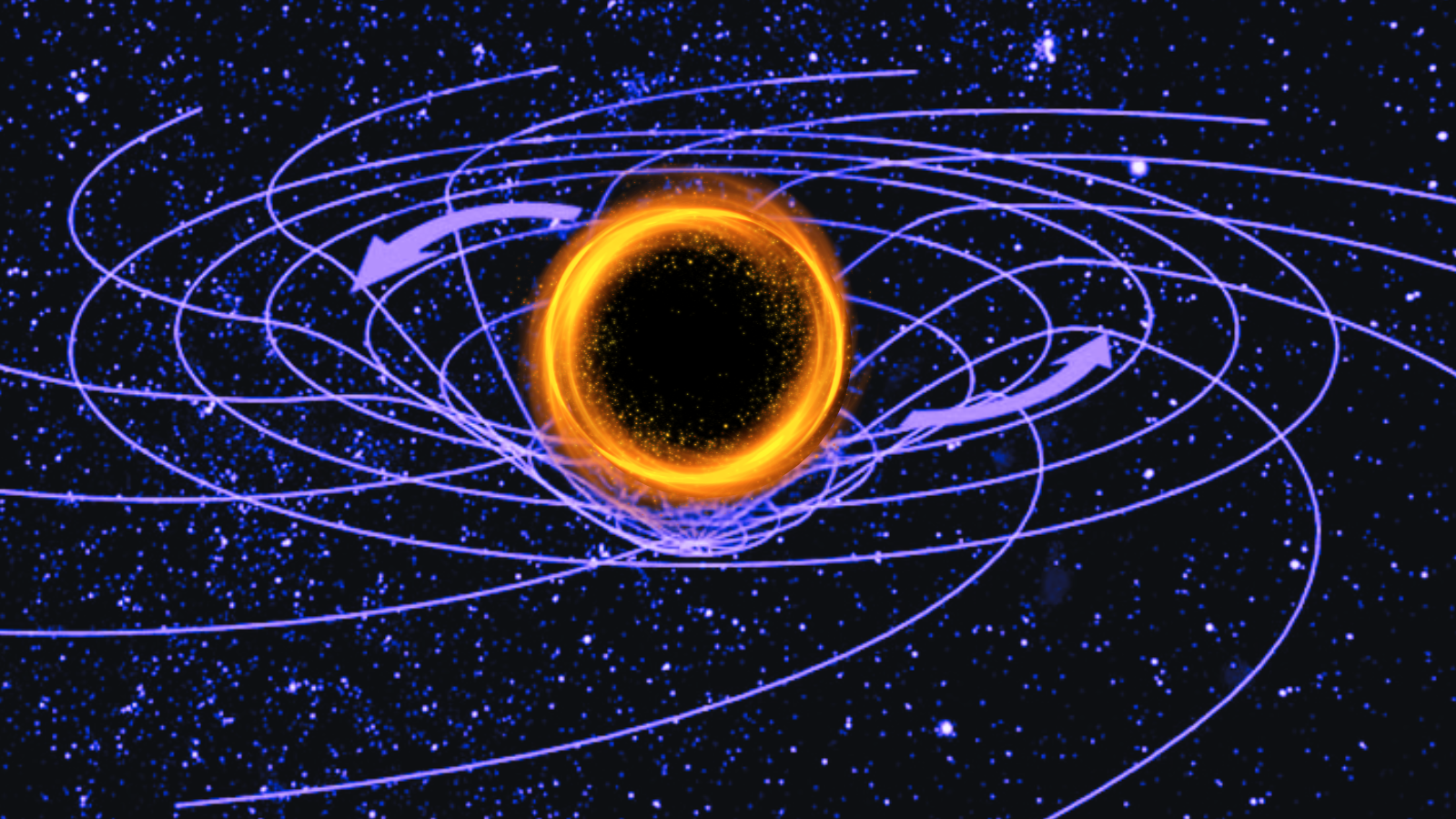
What is dark matter made of? New study bolsters case for 'primordial' black holes
By Paul Sutter published
In the early universe, primordial black holes could acquire a "dark charge," giving them an unnaturally long lifetime, new research suggests. This makes them an interesting candidate for dark matter.
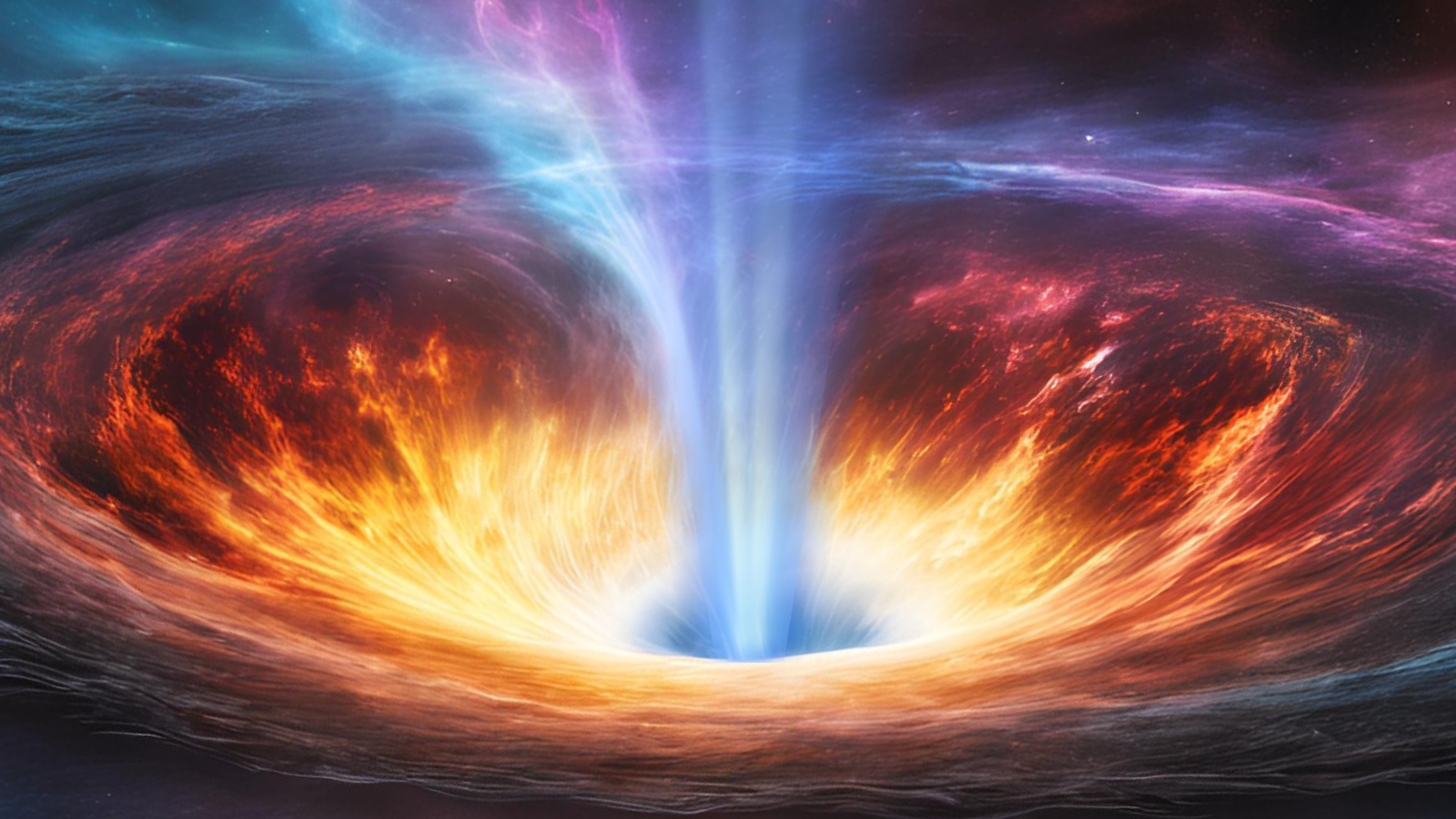
What would happen if the Milky Way's black hole erupted? This distant galaxy paints a terrifying picture
By Robert Lea published
The observation of titanic jets emerging from the supermassive black hole at the heart of a distant galaxy could be a grim prediction of the Milky Way's future.
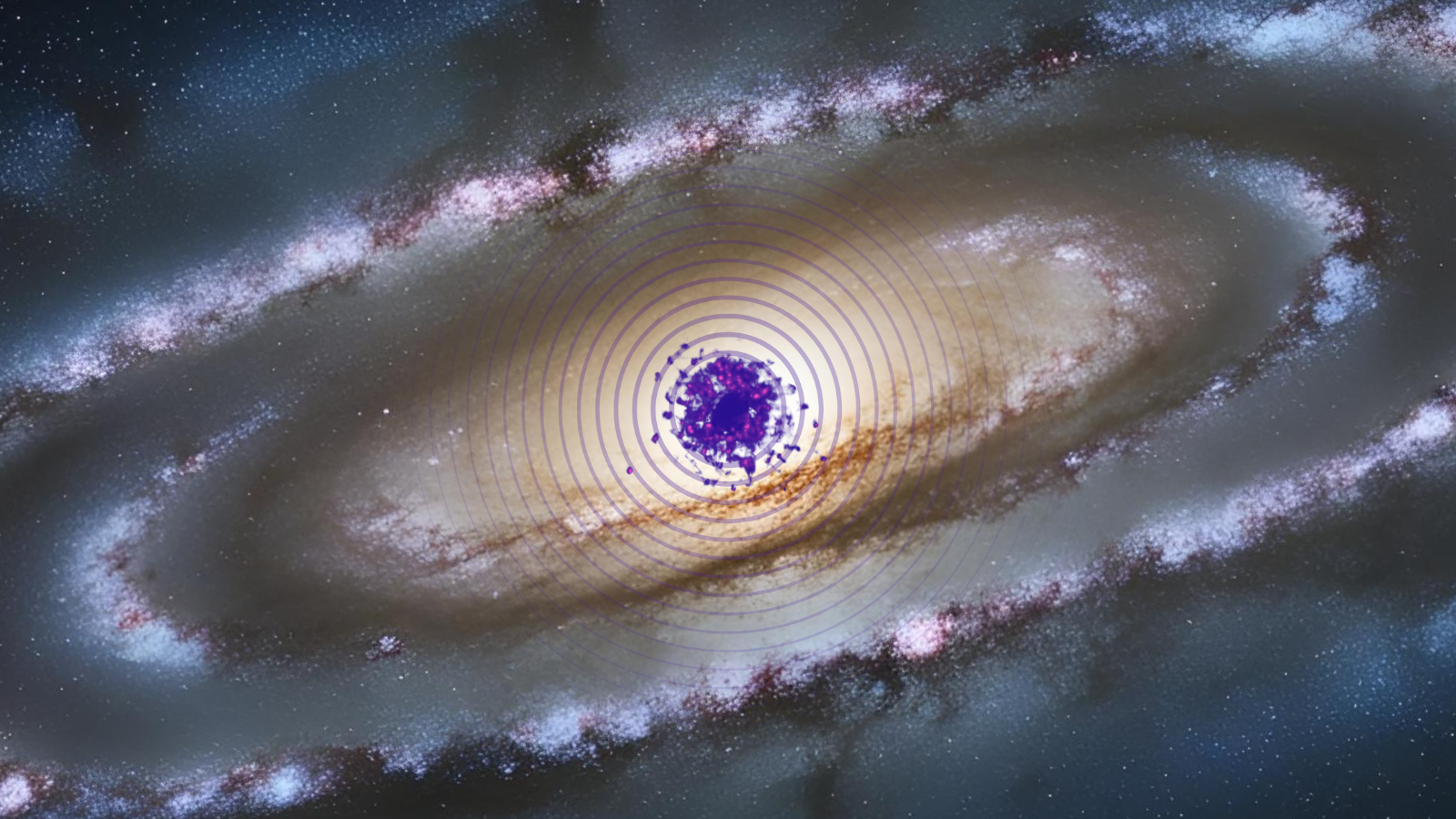
Mysterious phenomenon at the heart of the Milky Way could point to new dark matter suspect. 'We may have been overlooking its subtle chemical effects on the cosmos.'
By Robert Lea published
Strange events at the heart of the Milky Way could point toward a new dark suspect that annihilates to influence the chemistry of the cosmos.
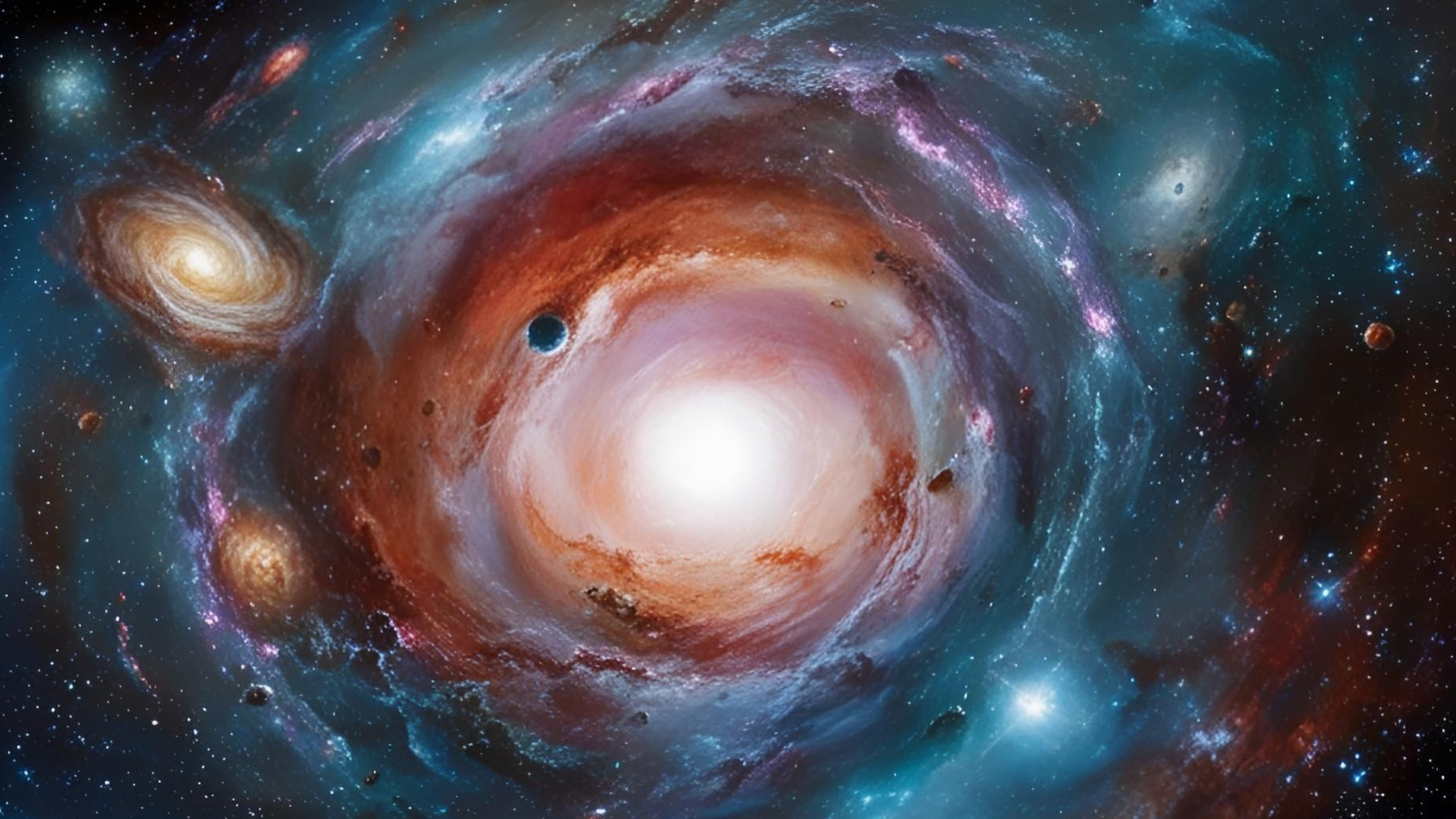
New recipe for gravity could unite Einstein's general relativity with quantum physics — and probe the dark universe
By Robert Lea published
If gravity arises from entropy, scientists could unite Einstein's general relativity with the quantum realm while shedding light on dark matter and dark energy.

Going to SXSW 2025? Here are the festival's best space-themed panels
By Julian Dossett published
Meet the Artemis 2 moon mission astronauts and learn about private lunar landers, space telescopes and the "dark universe" at SXSW 2025.
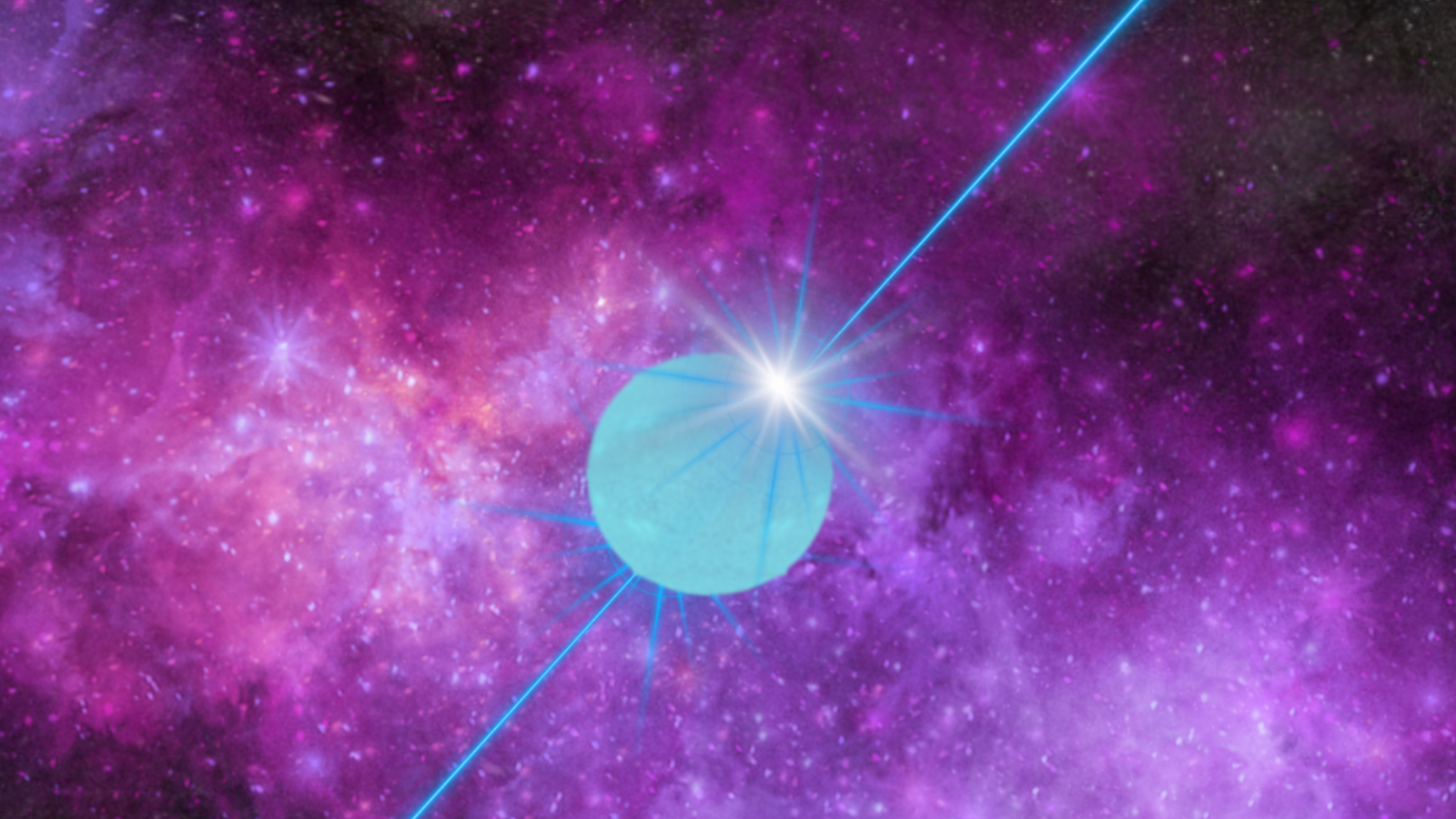
'Dark matter is more valuable than gold': Wobbly galaxies help shine a light on the universe's strangest stuff
By Robert Lea published
Scientists have used the wobble of the Milky Way and what are known as "cosmic lighthouses" to shine a light on the mystery of dark matter.
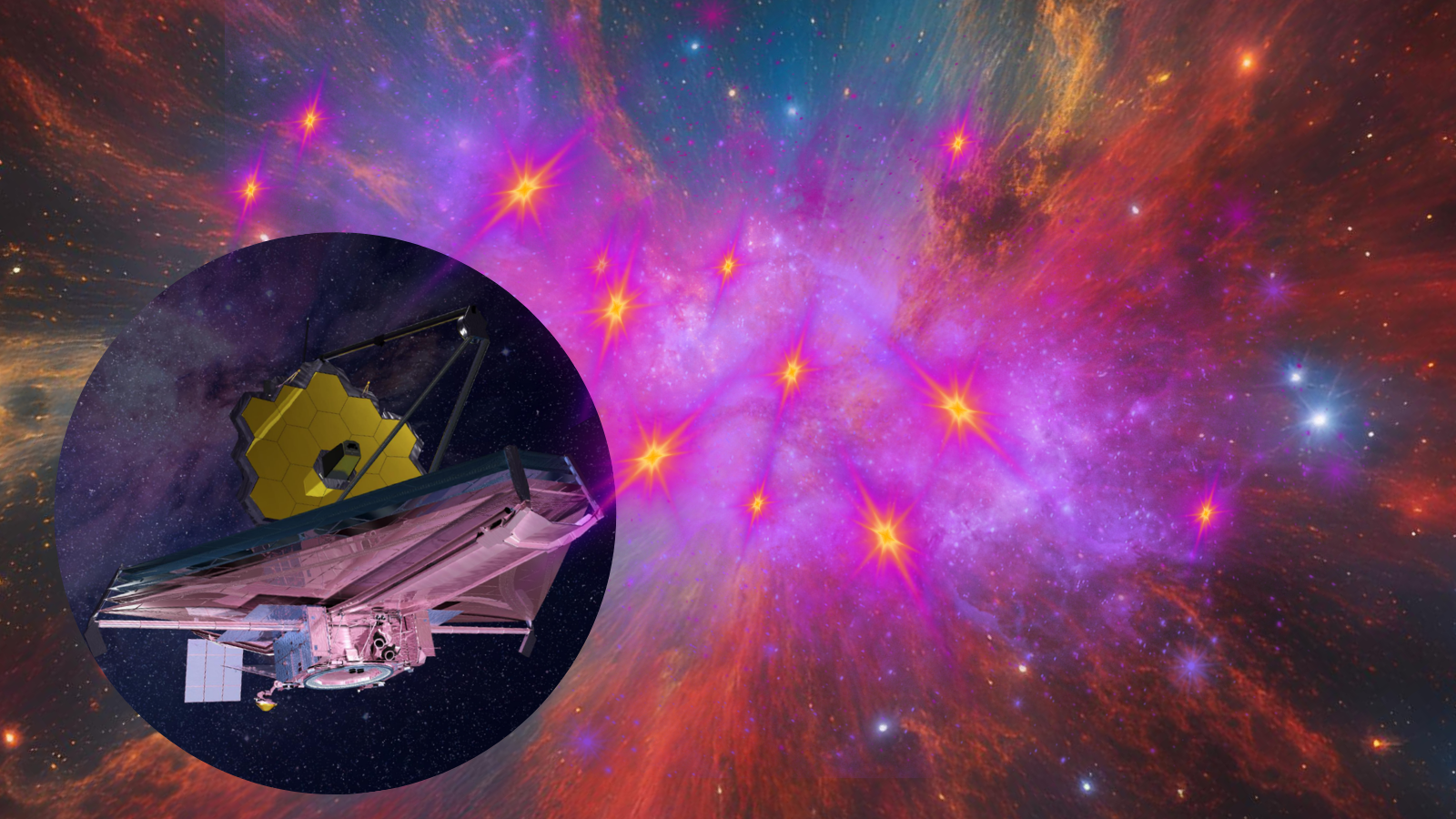
James Webb Space Telescope joins cosmic detectives in hunt for dark matter
By Robert Lea published
The James Webb Space Telescope has joined the hunt for dark matter, aiding cosmic detectives in searching for signals indicating axion decay.
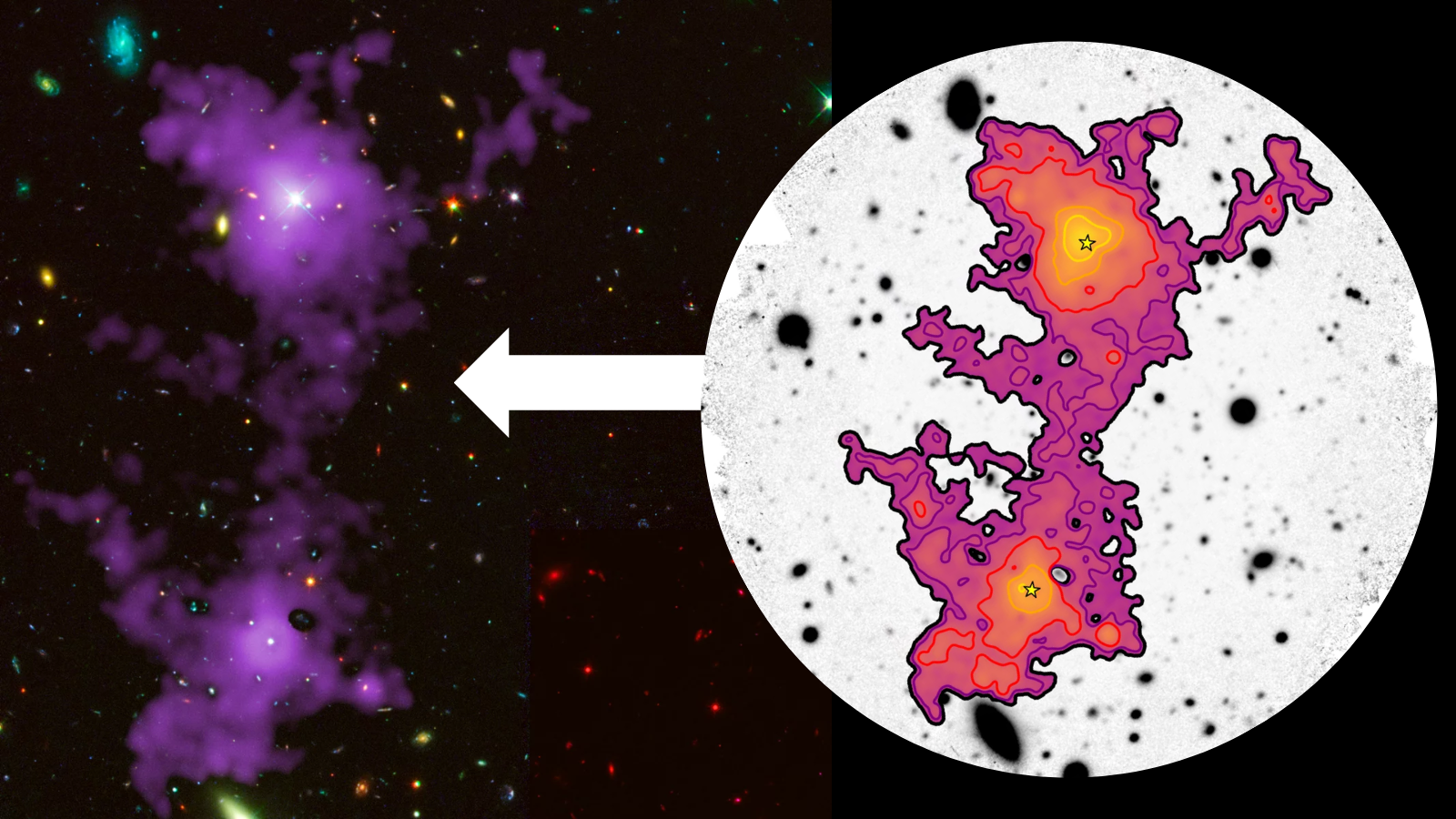
Scientist image 3-million-light-year-long 'cosmic web' ensnaring 2 galaxies for 1st time
By Robert Lea published
Astronomers have been able to image gas as it travels down a 3 million light-year-long cosmic highway between two growing galaxies ensnared in the cosmic web.
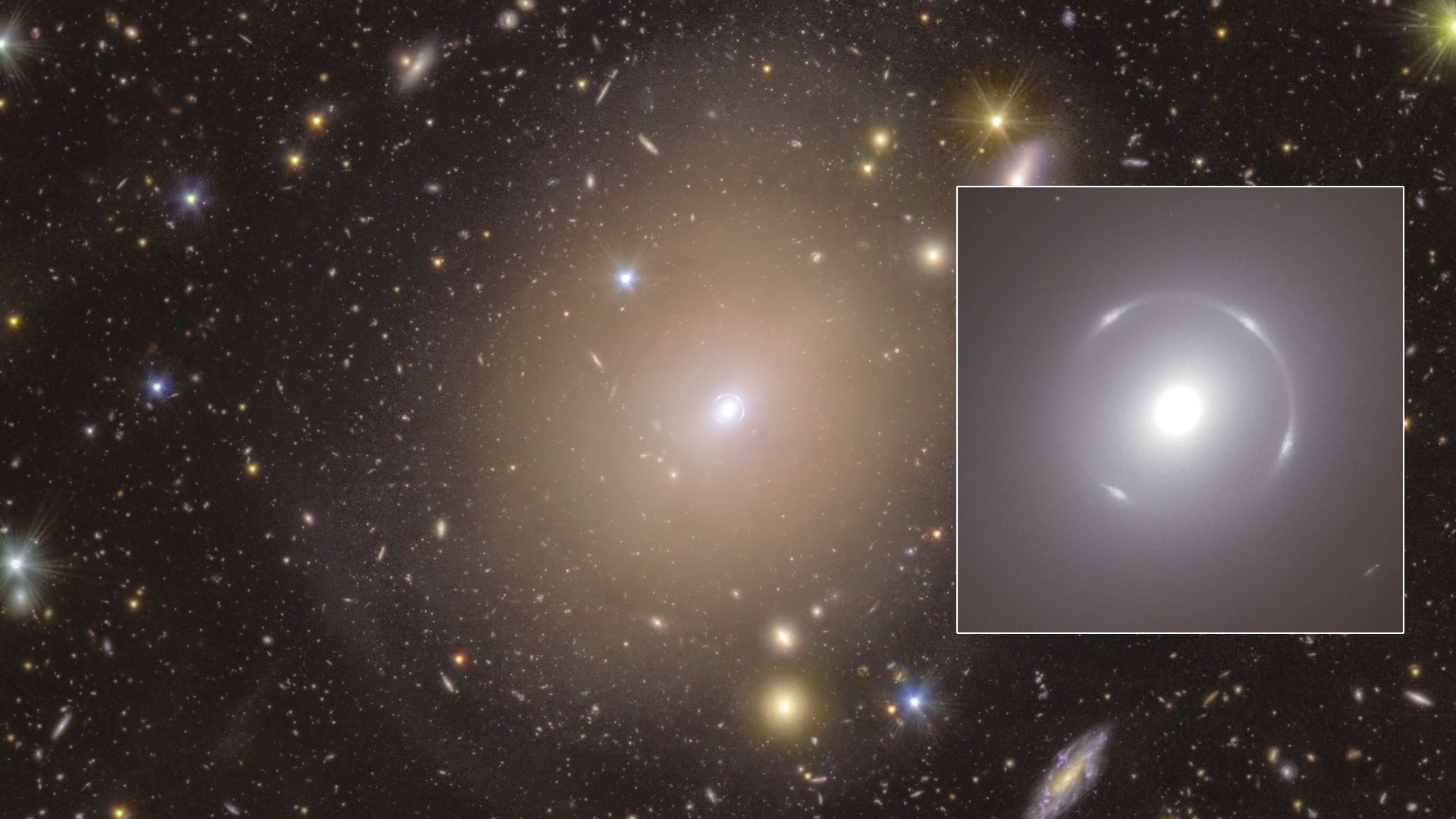
Euclid 'dark universe' telescope discovers stunning Einstein ring in warped space-time (image)
By Robert Lea published
The "dark universe detective" space telescope Euclid has discovered its first Einstein ring in the process, learning about dark matter at the heart of a distant galaxy.
Get the Space.com Newsletter
Breaking space news, the latest updates on rocket launches, skywatching events and more!
